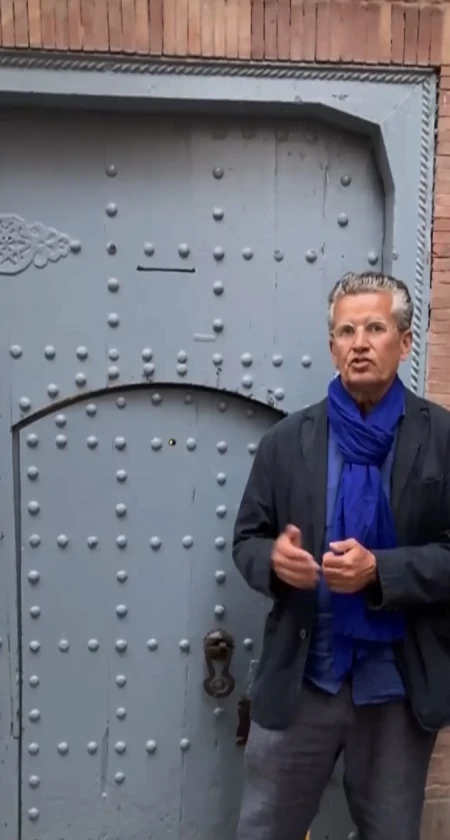
In Marrakech – more precisely, in front of a door. A very old door. Subtly painted, beautifully crafted. It belongs to the riad in the medina where I’m staying – and it is low. So low that one must bend to pass through it.
It is a gesture. A bow.
Not an act of submission, but one of respect – toward the host, the house, the place itself. A movement that attunes body and mind to what lies ahead. And in that lies the quiet power of this detail.
What fascinates me about this door: it is set within a larger gate. A “door within a door,” as it’s sometimes called – a common feature in traditional Islamic architecture. And, as so often in Marrakech: precisely designed, rich in meaning.
Why this design? There are multiple reasons – both practical and symbolic.
Large gates were heavy, imposing, reserved for processions, riders, or honored guests. For daily use, the small door sufficed: easier to open, easier to guard, and more efficient in controlling heat and dust. Not least, it served as a marker of status. To enter through the grand gate meant something else entirely.
Crossing the threshold today, I catch myself feeling something unusual. This simple act of bowing transforms the moment. The threshold becomes more than just an entrance – it becomes a ritual. And that, perhaps, is the essence of thoughtful design: it creates meaning without making noise.
Architecturally, it’s equally intriguing. The small door is not an afterthought, but a deliberate contrast – delicate within the massive. It creates a dialogue: between power and humility, between daily life and ceremony.
This motif is not unique to Marrakech. From Asian temples to medieval castles and Persian gardens, this principle recurs: architecture as attitude, as message. The door is not just a structural element – it’s a medium.
And perhaps that is why it feels so relevant today.
In a world preoccupied with speed, scale, and dominance, a small, wooden door that asks us to bow offers something else:
A moment of mindfulness. A lesson in proportion. A gesture of dignity.